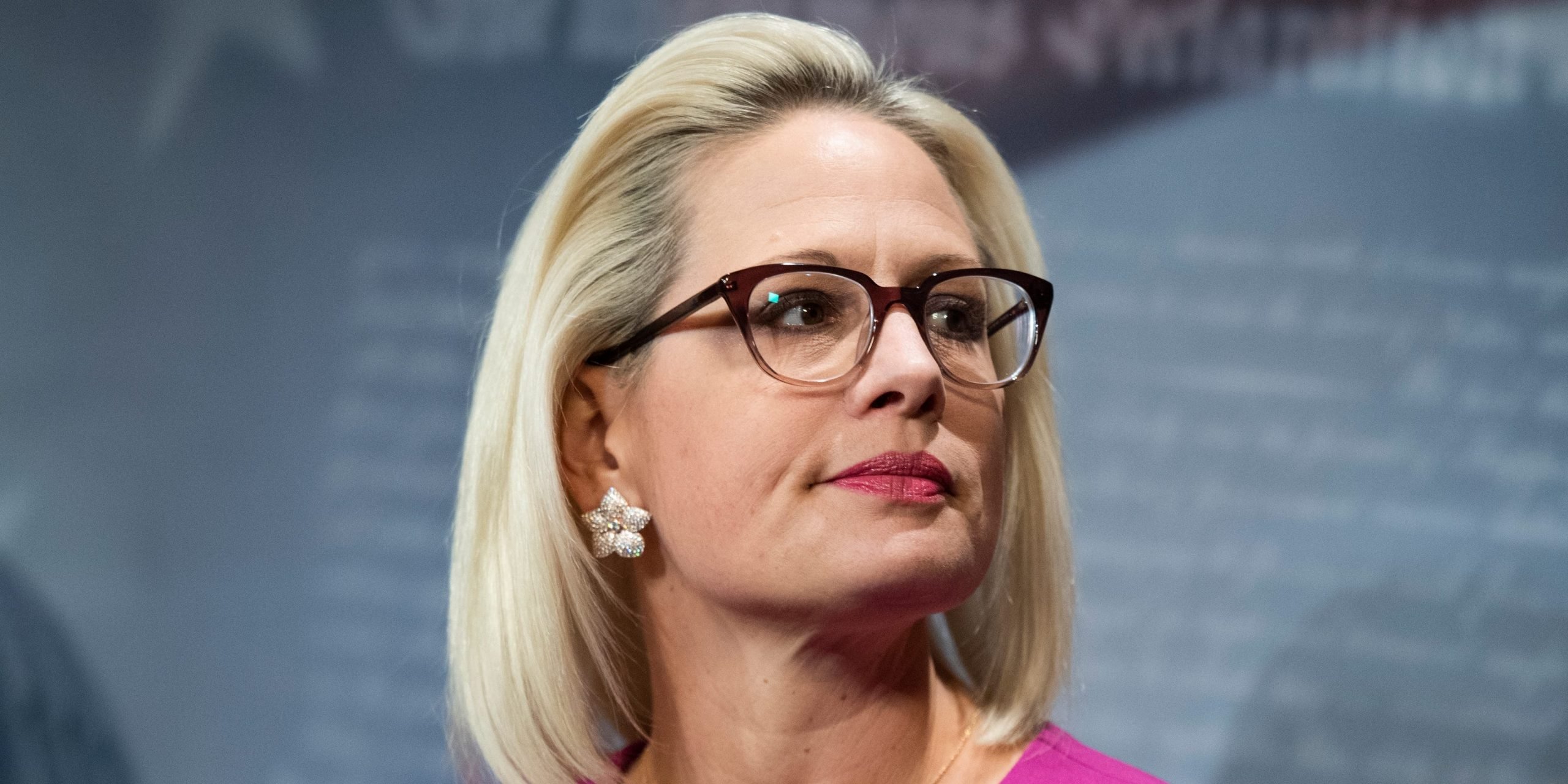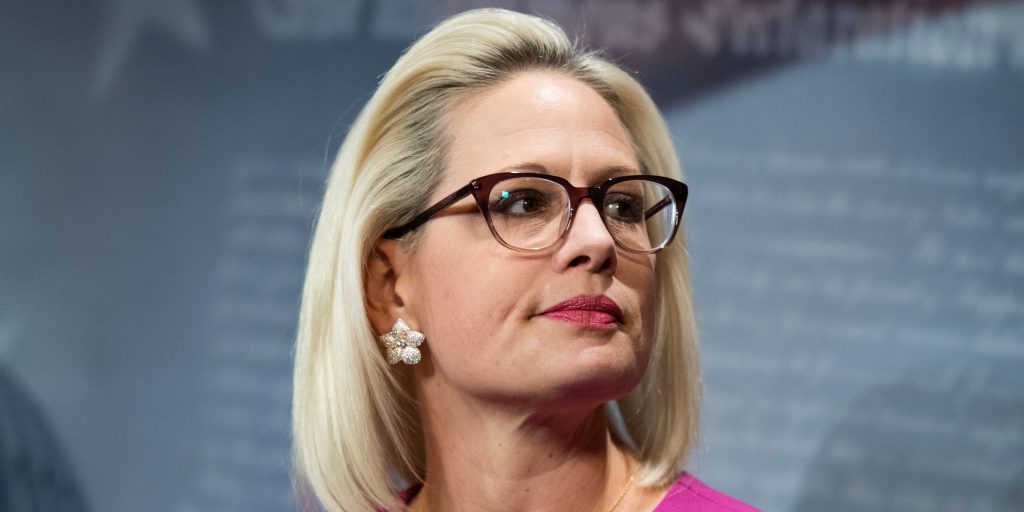
Tom Williams/CQ-Roll Call Inc. via Getty Images
- Sinema's opposition to rolling back swaths of the Trump tax law is prompting a scramble for alternatives among Democrats.
- Other options include stepping up IRS enforcement and tightening international tax rules.
- Democrats have little room for error and its unclear which tax proposals could get Sinema's support.
Opposition from Sen. Kyrsten Sinema of Arizona to lifting tax rates on individuals and large businesses is derailing Democrats' plans to roll back President Donald Trump's tax law, setting off a last-ditch effort to seek alternatives that can lock in the centrist Democrat's support.
A Senate Democratic aide familiar with the discussions told Insider that other options were still on the table, including stepping up IRS tax enforcement and tightening international tax rules. The Wall Street Journal first reported the story.
Insider reported last week that Sinema was opposed to bumping up tax rates on large firms and wealthy individuals, dealing a major setback to a centerpiece of the Democratic agenda: rolling back the 2017 GOP tax law.
Democrats argued for years that the law provided outsized financial benefits for the rich and helped accelerate inequality. Sinema's opposition to both individual and corporate rate increases strips over $700 billion in new revenue for their nascent safety net plan.
President Joe Biden initially sought to raise the corporate tax rate to 28% from 21% and lift the top individual income tax rate to 39.6% from 37%. For his part, Sen. Joe Manchin of West Virginia, another key vote in the 50-50 Senate, has signaled he'd accept a 25% corporate tax rate.
Still, that leaves the party with few alternatives that can garner support from every Senate Democrat as they try to mold Biden's economic plans into law over staunch Republican opposition. They have three votes to spare in the House and none in the Senate.
Some Democrats are starting to express frustration with the tumultuous negotiations on the safety net bill. "We didn't have a new tax plan every half hour," Rep. Richard Neal of Massachusetts, chair of the House Ways and Means Committee, told reporters on Wednesday. "We laid out a plan that was fully paid for, and we set our priorities."
Sen. Ron Wyden of Oregon, chair of the tax-writing Senate Finance Committee, has said for weeks that Democrats can draw from an extensive menu of revenue-raisers to pay for their ambitious plans to expand healthcare and education, as well as mitigating the climate emergency.
Wyden's proposals include what he calls a billionaires' income tax, modeled on an earlier proposal he unveiled in 2019 to tax the accumulated wealth of the richest Americans. The plan hasn't been released yet and it's unclear how much revenue it could raise. Other possible alternatives include levies on large firms that issue stock buybacks to shareholders.

